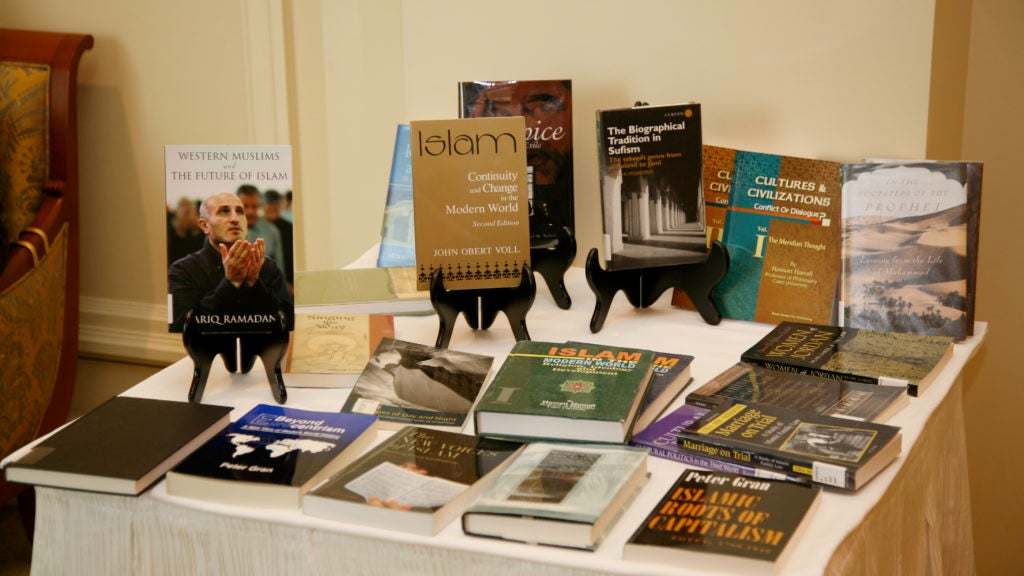Innovation in Islam Conference Concludes

The two day conference discussed civic, political, and cultural life in Islamic society
The Center for International and Regional Studies at the Georgetown University School of Foreign Service in Qatar (SFS-Qatar) concluded its annual academic conference entitled “Innovation in Islam.”
The first day of the conference featured discussions on the epistemological concept of innovation in Islam; changes in Islamic institutions such as the family, courts, and the mosque and reality of innovation in Islam and Islam and the intellectual process. The first day of the conference was concluded by a keynote speech by the Syrian poet Adonis who stressed the need for Muslims to “innovate themselves” and their way of interpreting Islam.
Further enriching the discussions of the previous day, the second day of the conference started with a panel on literary and artistic innovation. Walter Denny from the University of Massachusetts discussed the interplay between innovation and tradition in Islamic arts by drawing examples from Islamic ceramics, carpets and architecture.
In the realm of literature, Patrick Laude of Georgetown University presented a paper on the spiritual function of poetry in Sufism. Jawid Mojaddedi of Rutgers University talked about Islamic historiography and argued against the prevalent attitude that Islamic scholarship is stuck in the past and resistant to innovation. He considered Islamic historiography as a dynamic and creative process in which the past is recalled, re-embraced and reconstituted.
Following the first panel, the discussion took up the topic theology and fiqh in Islam. The panel featured Merhan Kamrava of Georgetown University, Ziba Mir-Hosseini of University of London and Omaima Abou-Bakr from Qatar University. Kamrava talked about historical changes in Shi’a fiqh.
Mir-Hosseini spoke about hijab in fiqh between politics and theology. She explained the emergence of a new juristic position on hijab in Iran where Islamic feminists speak of hijab as a “right”. She concluded that the new position might bridge the gap between the secular feminist and Islamic discourses.
Abou-Bakr talked about interpreting women’s biographies in Medieval Islamic writings. She demonstrated that new strategies could be used to yield a different understanding of Muslim women in medieval history and femininity in Islamic tradition.
The third panel focused on Islam and Modernity. Sherman Jackson of the University of Michigan presented assumptions made on Muslims in the United States. In his discussion, he listed some of the assumptions Westerners make about Muslims and Islam in the United States.
In his turn, John Voll of Georgetown University presented a survey of modern movements in Islam throughout the past two centuries. He aimed at showing the dynamic interactions between Islam and modernity.
The audience’s questions and comments contributed to the value of the conference as a forum in which the relationship between Islam and innovation is discussed.
The papers presented in the conference will be collected and edited to produce a book.